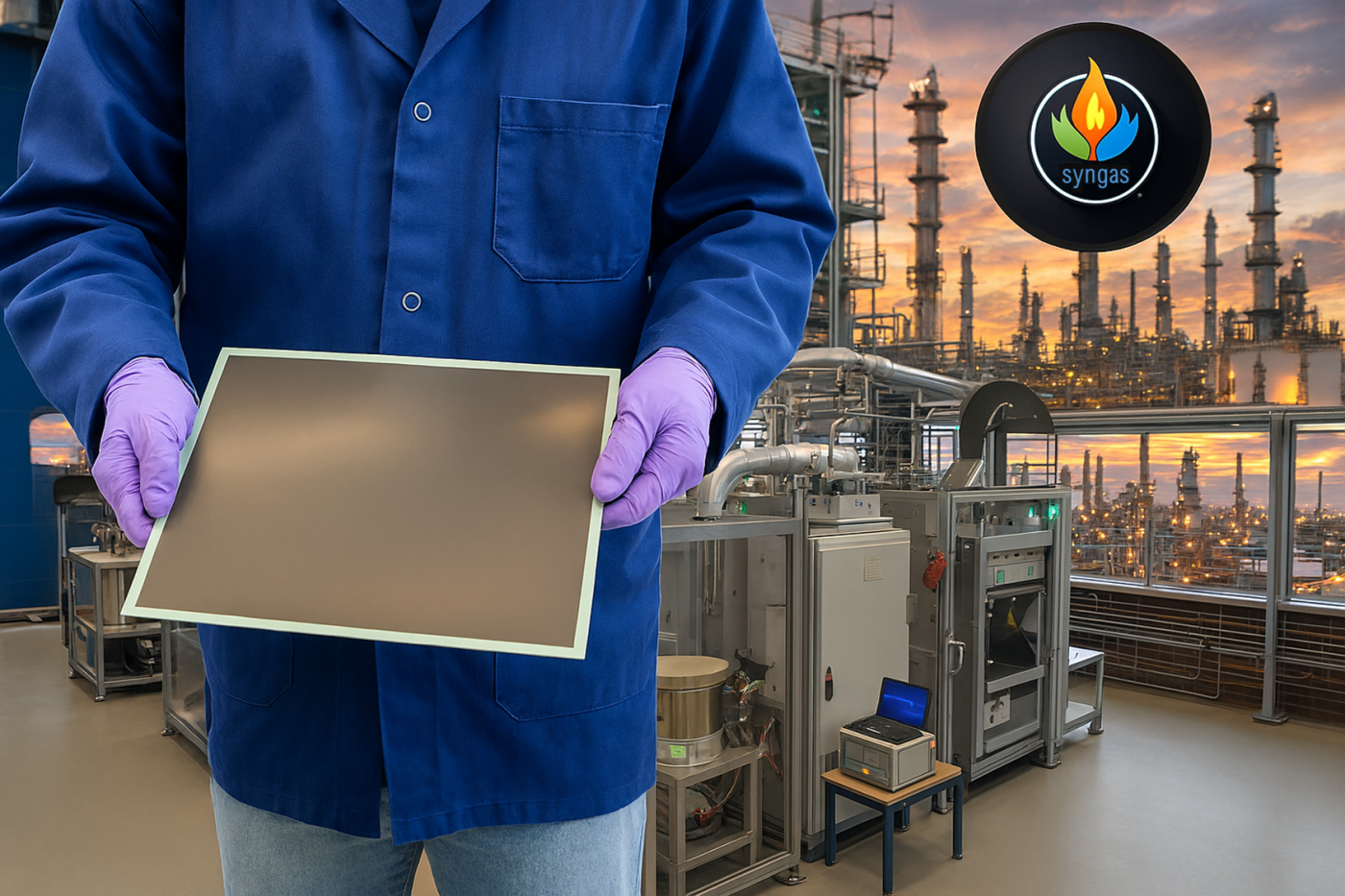

SOCRATES: CEA-TNO Collaboration Driving Innovation on Solid Oxide co-Electrolysis Towards Large-scale Industrial Decarbonization
09-01-2026
 CEA and TNO have launched SOCRATES, a four-year collaboration to advance Solid Oxide Electrolysis for efficient syngas production by developing the next generation of co-electrolyzer technology. The project focuses on cell and stacks tuned for this application, and their integration into co-SOEL system designs to enable future pilot-plant implementation. By combining the expertise of both institutes, the partnership leverages complementarities, strengthens industrial ties and accelerates the deployment of co-electrolysis technologies.
CEA and TNO have launched SOCRATES, a four-year collaboration to advance Solid Oxide Electrolysis for efficient syngas production by developing the next generation of co-electrolyzer technology. The project focuses on cell and stacks tuned for this application, and their integration into co-SOEL system designs to enable future pilot-plant implementation. By combining the expertise of both institutes, the partnership leverages complementarities, strengthens industrial ties and accelerates the deployment of co-electrolysis technologies.
Co-SOEL: Driving Syngas Production for Sustainable Fuel Production
Solid Oxide co-Electrolysis (co-SOEL) is an electricity-driven technology that simultaneously converts steam and carbon dioxide into syngas at high temperatures, enabling highly efficient production of sustainable fuels such as green methanol and SAF (Sustainable Aviation Fuel). Co-SOEL systems enable direct CO2 utilization for circular-carbon strategies and the production of a syngas stream with an adjustable H2/CO ratio, allowing optimal integration with downstream synthesis processes to improve conversion yields, reduce process complexity, and lower overall system costs. The SOCRATES project aims to enhance the performance and durability of cell and stack by addressing the specific challenges of co-electrolysis, such as ensuring stable operation under varying H2O/CO2 ratios and mitigating degradation linked to the high-temperature and carbon deposition. By overcoming these barriers, SOCRATES is paving the way for efficient, large-scale production of synthetic fuels and accelerating the transition to a carbon-neutral future.
CEA & TNO Kick-start SOCRATES: A Research Alliance for Co-Electrolysis
Earlier this year, we officially launched SOCRATES, Solid Oxide Co-electrolysis Research Alliance for high TEmperature Syngas production, a strategic collaboration between TNO and CEA. This program is part of a broader collaboration, in which co-SOEL developments is one of the key topics we are jointly advancing to drive Europe’s energy and materials transition.
CEA is a leading French research and technology organization with a more than 20 years of expertise in the field of hydrogen and fuel cells. CEA is developing the solid oxide technology, working on the whole value chain, from materials to cells, stack and systems, including multiscale and multiphysics modelling and advanced characterisations to support the technology development. Its 1000 m² of hydrogen laboratories allow to deeply characterise the cells, stacks and systems from kW to 100 kW+, in performance and durability, in conditions representative of service (gas, pressure, load profile…).
Through collaboration with industry and research partners, CEA fosters innovation in co-electrolysis for syngas production, driving Europe’s transition to sustainable fuels.
TNO is a leading Dutch applied research organization with decades-long expertise in Solid Oxide Fuel Cell (SOFC), Electrolysis (SOEL) and co-SOEL applications. TNO’s program on Solid Oxide Electrolysis focuses at developing the next generation of cell & stack technologies, optimizing system integration by creation of cost-performance models to guide the scale-up and accelerate the deployment in the industrial sector, with the support of its manufacturing and testing infrastructure, the Faraday Lab.Through collaborative programs, TNO supports industrial adoption of co-electrolysis for syngas and sustainable fuel production, supporting Europe’s transition to a carbon-neutral future. Find out more about TNO’s SOE projects in this video.
Towards Demonstration: Advancing Co-SOE for Next-Generation Synfuels
The SOCRATES aims to bridge the gap between research and real-world application. This is done by developing advanced co-SOEL cells and stacks, validating performance under representative industrial conditions, and optimizing system integration for syngas production. Our ambition is to bring this technology closer to a demonstration-scale pilot plant for sustainable fuels. While SOCRATES is a dedicated collaboration between TNO and CEA, we are actively seeking opportunities to work together with industry and research partners on joint projects that accelerate scale-up and deployment. Collaboration is key to realizing the next-generation of co-SOEL systems and shaping Europe’s carbon-neutral future.
Do you want to know more about SOCRATES? Contact Eduardo da Rosa Silva, phone: +31 6 29 77 00 69, email: eduardo.darosasilva@tno.nl.
Share this page: